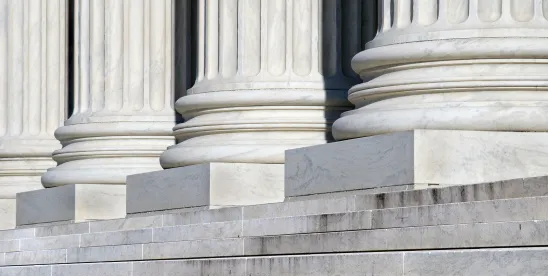On Thursday, June 5, 2025, the United States Supreme Court issued an 8-1 opinion in the matter of Laboratory Corp. of Am. Holdings v. Davis in which it declined to take up the issue of whether district courts can certify a class that contains uninjured members.
In the opinion, the Supreme Court dismissed as improvidently granted the appeal of a Ninth Circuit decision affirming class certification despite the fact that the class, as certified, contained some uninjured class members.
Writing in dissent, Justice Kavanaugh framed the question presented as “whether a federal court may certify a damages class pursuant to Federal Rule of Civil Procedure 23 when the class includes both injured and uninjured class members.” Justice Kavanaugh stated that he would hold that a federal court may not certify such a class under Rule 23.
Notably, Justice Kavanaugh also examined the real-world consequences of improvidently granted motions for class certification on business, explaining: “[c]oerced settlements substantially raise the costs of doing business. And companies in turn pass on those costs to consumers in the form of higher prices; to retirement account holders in the form of lower returns; and to workers in the form of lower salaries and lesser benefits. So overbroad and incorrectly certified classes can ultimately harm consumers, retirees, and workers, among others.”
The Court’s decision to dismiss the appeal defers a potentially significant decision impacting businesses throughout the country. Given this lack of clarity, it is important that businesses facing class action allegations retain knowledgeable and sophisticated counsel to advance their rights.




 />i
/>i
